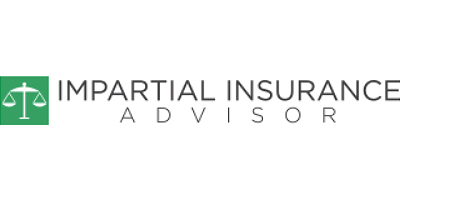Insurance Should Be Third Tier
I just finished a case that showcased how smart people are tricked by the insurance industry. As I reflected on it I thought of a simple exercise that can keep others from falling into the same trap. I’d like to share the story and solution with you.
This client is a surgeon– a pretty smart guy. Yet he did something so inappropriate I could cry. He bought a cash value policy from Northwestern costing $3000/year. What’s wrong with that?
Sometimes (rarely) cash value life insurance is OK, so don’t automatically cash in your old policies. It depends. But this client had much debt and was eligible for a Roth he couldn’t afford to fund each year. These are two key points. They shout of the inappropriateness of cash value insurance, and the simple paradigm I’m about to share puts it in clear focus.
Here’s the paradigm. Most financial planning decisions fall in one of three broad categories: repaying debt, saving/investing, or insuring. Yet financial planning decisions being made every day are more detailed: buy this stock or that mutual fund, accelerate the mortgage or fund a 529 plan, a Roth or more in the 401k, etc. It’s easy to lose sight of the forest for the trees.
So here’s the plan. It’s worth its weight in gold. Clip it and save it and use it for the rest of your life. It will help you avoid many costly mistakes.
When confronted with a decision of where to send your precious few discretionary financial planning dollars, first step back and view the decision from a higher altitude. First put the decision at hand in one of these three broad categories:
1. Repay debt
2. Save/Invest
3. Insure
Initially don’t sweat the small stuff, don’t swallow the camel while straining at the gnats, and don’t be pound foolish while trying to be penny wise. The abundance of similar maxims testifies of this strong human tendency that trips people up. For now, simply put the decision in its general category; one of three; simple.
The agent directed his focus to preparing for death with a $75,000 whole life policy. Knock out that issue with a policy that pays after your term ends. Sound good? But it’s out of context. For this client, buying the policy is obviously insurance, category 3. He could quickly realize that’s the lowest priority and until the top two are satisfied, he shouldn’t spend extra insuring. He still had unpaid consumer debt (1) and an unfunded Roth (2), so expensive cash-value insurance should’ve stayed relegated to the back seat until 1 and 2 were satisfied.
Why are these ranked in that order? It’s as simple as asking which advances your net worth in the most surefooted manner:
1) By saving interest, debt-repayment dollars are guaranteed to increase your net worth, from day one; 1) investment dollars may do the same, depending on transaction costs and how invested (it could go down);
2) insurance dollars (for most people), decrease your net worth because transactions costs are the highest of the three and for most the insured peril does not occur.
For this client, these dynamics were extreme. His most expensive debt was at 11% interest and the cash value policy he bought, after three years’ premiums totaling almost $10k, had a surrender value of only $2000. In defense of the insurance sale, the doctor did not have this high interest debt when he bought the policy. Incriminating the sale however is that the company sells other policies building cash values much quicker. This was clearly commission driven.
No sense in cursing the darkness (caveat emptor), so how could this client have avoided this mistake? By stopping to put the decision at hand in its broad category. Insurance should be third tier in the scheme of financial priorities.
An agent will try to make it first tier… so expect it. Your emotions will also lure you to give it a higher priority than appropriate. Seldom do emotions lead well in finances.
If you relegate insurance to the back seat, you’ll make better decisions. There will be some exceptions, and that they are …exceptions, not the rule. Postpone them or deal with them a cheaper way (term insurance), but hold fast that pecking order.
What might that look like? Higher deductibles, not insuring old cars for collision, skipping dental insurance for most people, term life insurance often at smaller amounts, tinier long-term care policies or none at all, recognizing that self-insurance is the cheapest form of insurance and not insuring that which you can pay for yourself.
It’s not just that insurance is so bad, but that other options are so priority. You can’t do it all. Tenaciously keep right priorities: honor God with the tithe, be at least somewhat generous to others as you’d want done to you, avoid debt like the plague (and aggressively work to get out of it), keep a reasonable emergency fund, fund your matched 401k and maybe a Roth. This will likely moderate your use of insurance and help you come out ahead.

Leave a Reply
Want to join the discussion?Feel free to contribute!